Healthcare’s growing complexity makes revenue cycle management (RCM) essential to success. Every stage, from patient intake and insurance checks to coding and collections, directly shapes both financial health and patient satisfaction. This makes skilled revenue cycle managers critical for healthcare organizations.
RCM certification provides professionals with the compliance, efficiency, and adaptability needed to navigate shifting regulations and payment models. Just as importantly, it validates technical expertise, offering a clear competitive edge in today’s crowded healthcare job market.
Certification providers provide course access to professionals looking to upskill or formalize their healthcare management experience. Here, we explain what RCM certification entails and detail the top RCM certification providers for 2026.
Top 10 revenue cycle management certification providers for 2026
1. Healthcare Financial Management Association (HFMA)
2. American Association of Healthcare Administrative Management (AAHAM)
3. Medical Group Management Association (MGMA)
4. American Health Information Management Association (AHIMA)
5. American Institute of Healthcare Compliance (AIHC)
6. Practice Management Institute (PMI)
8. Healthcare Business Management Association (HBMA)
9. Coursera
What Is Revenue Cycle Management Certification?
Revenue cycle management certification is more than a credential; it’s a standard of excellence in healthcare finance. It proves mastery of knowledge, processes, and compliance required to manage financial operations, such as:
-
Patient registration
-
Insurance checks
-
Coding
-
Billing
-
Claims
-
Collections
Description Why It Matters Purpose Validates expertise in revenue cycle processes and compliance Builds trust with employers and demonstrates readiness to reduce denials and protect revenue Audience Coders, billers, administrators, compliance officers, and finance leaders Equips teams across roles to work together toward financial accuracy and efficiency Benefits Career advancement, higher earning potential, and professional credibility Increases job security and supports organizations seeking proven expertise Format Online courses, exams, and continuing education Flexible learning paths allow professionals to stay current with industry and regulatory changes Examples AAHAM Certified Revenue Cycle Executive (CRCE), HFMA Certified Revenue Cycle Representative (CRCR) Widely recognized credentials that open doors to leadership and specialized RCM roles
By covering both technical and managerial aspects of healthcare finance, RCM certifications help professionals stay aligned with industry best practices, safeguarding against the risks of claim denials, compliance penalties, and financial inefficiencies.
For administrators, coders, billers, and financial managers, certification also supports career advancement, higher earning potential, and professional credibility. As healthcare organizations increasingly prefer or require certified candidates, these credentials are a powerful investment in long-term career development and industry recognition.
RCM Certification Providers Explained
RCM certification providers design, deliver, and maintain standards for professional credentials in revenue cycle management, ensuring certifications align with current regulations and best practices. There are three main certification provider types, each providing tailored approaches for different audiences:
-
Professional associations hold significant weight, offering nationally recognized certifications.
-
Educational institutions integrate certification training into broader academic programs.
-
Private training companies provide flexible and accessible options, often online, allowing busy professionals to earn certifications at their own pace.
Ultimately, the right provider depends on your career stage, learning style, and long-term goals.
American Association of Healthcare Administrative Management (AAHAM) or Healthcare Financial Management Association (HFMA) certifications may be the gold standard for those seeking broad recognition, while a private training program might be the right fit for professionals looking for flexibility or specialized skills within the RCM spectrum.
Top 10 Revenue Cycle Management Providers for 2026
1. Healthcare Financial Management Association (HFMA)
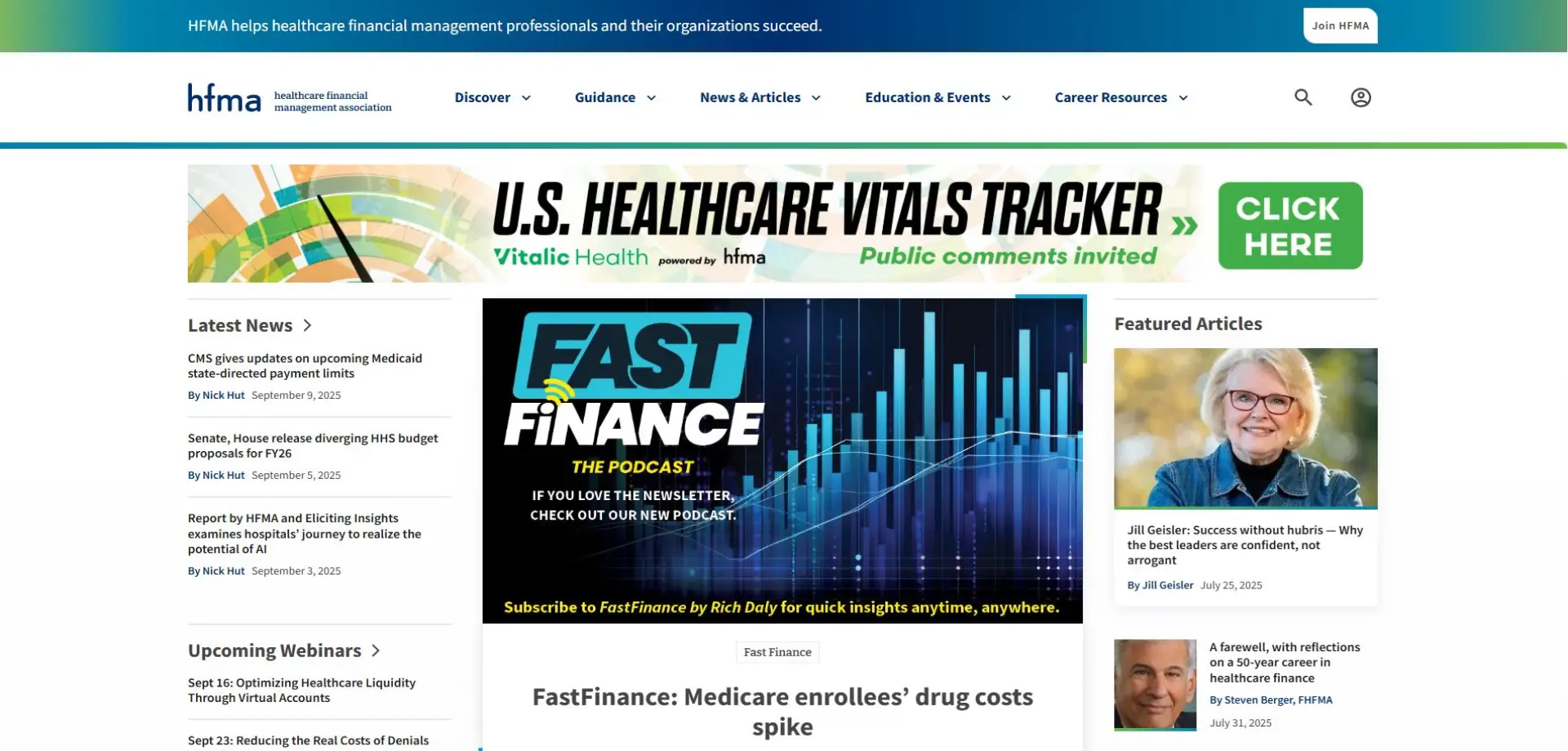
HFMA is widely respected for its Certified Revenue Cycle Representative (CRCR) program, which covers the entire patient financial experience. Its certification is highly valued by hospitals and health systems for demonstrating well-rounded expertise in revenue management.
2. American Association of Healthcare Administrative Management (AAHAM)
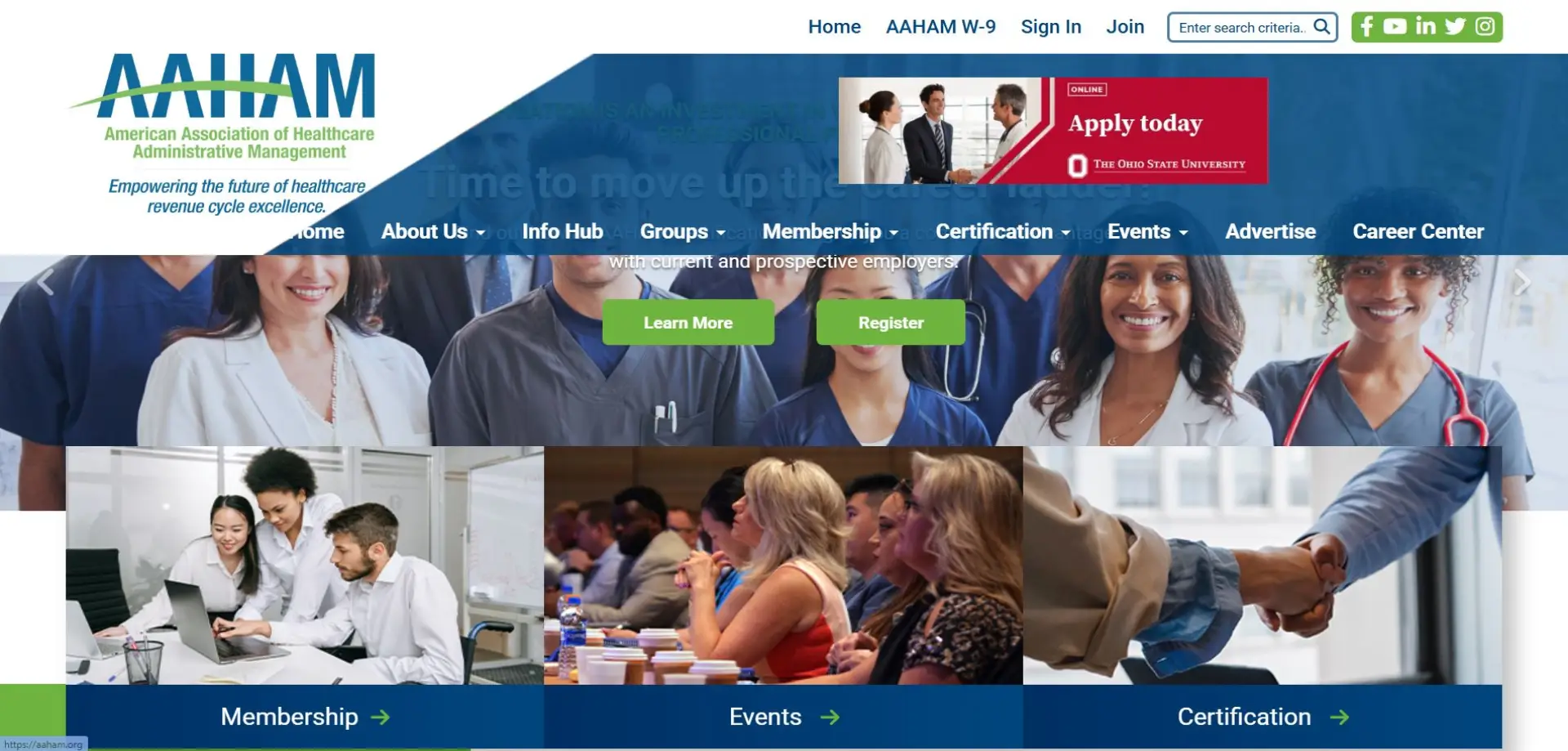
AAHAM offers tiered certifications such as:
-
Certified Revenue Cycle Executive (CRCE) – executive level
-
Certified Revenue Cycle Professional (CRCP) – professional level
-
Certified Revenue Cycle Specialist (CRCS) – specialist level
These credentials are tailored to different experience levels, recognized nationally, and often considered essential for career progression in healthcare finance.
3. Medical Group Management Association (MGMA)
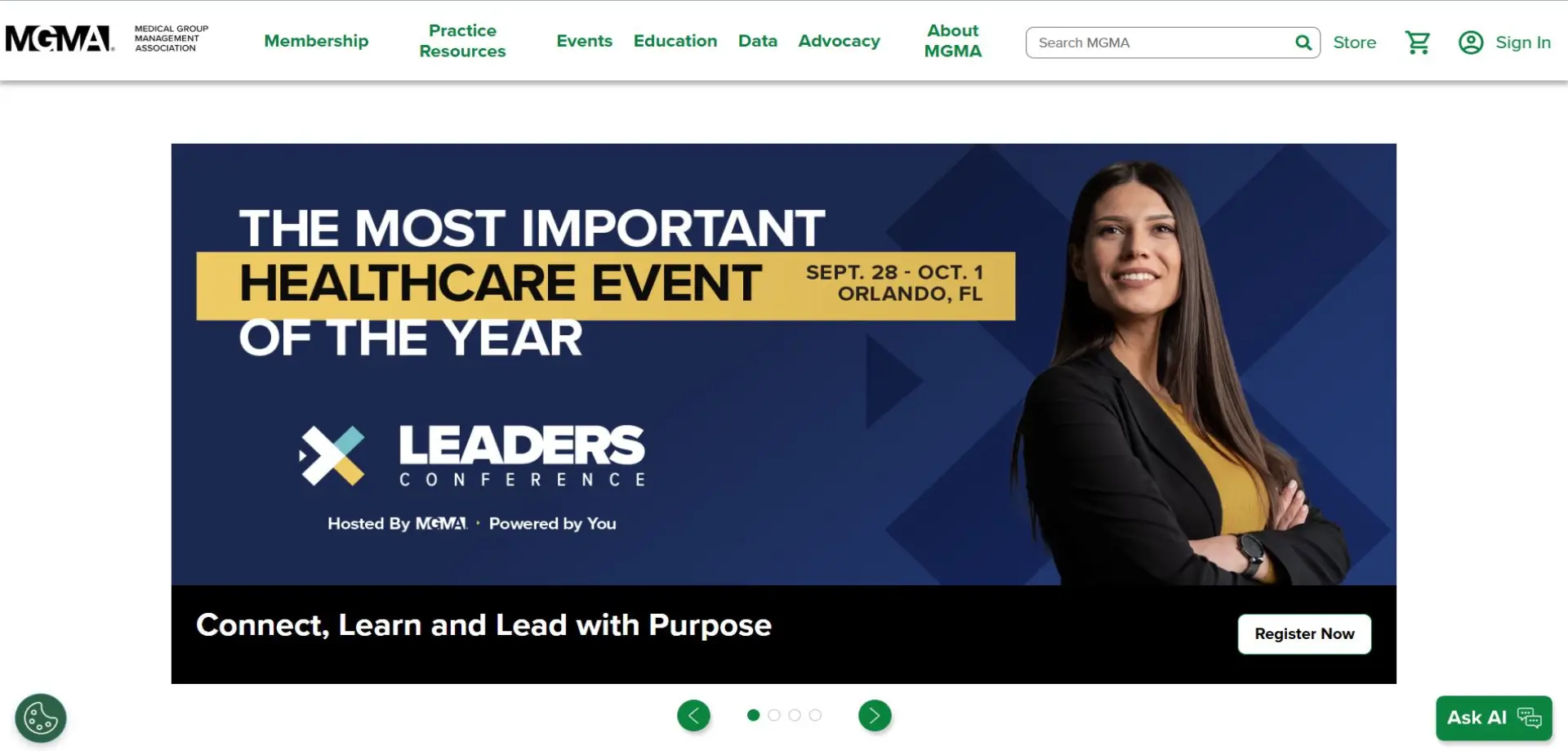
MGMA certifications combine revenue cycle knowledge with practice management skills, making them ideal for healthcare leaders. Their programs are designed for professionals who manage both the business and financial aspects of medical groups.
4. American Health Information Management Association (AHIMA)
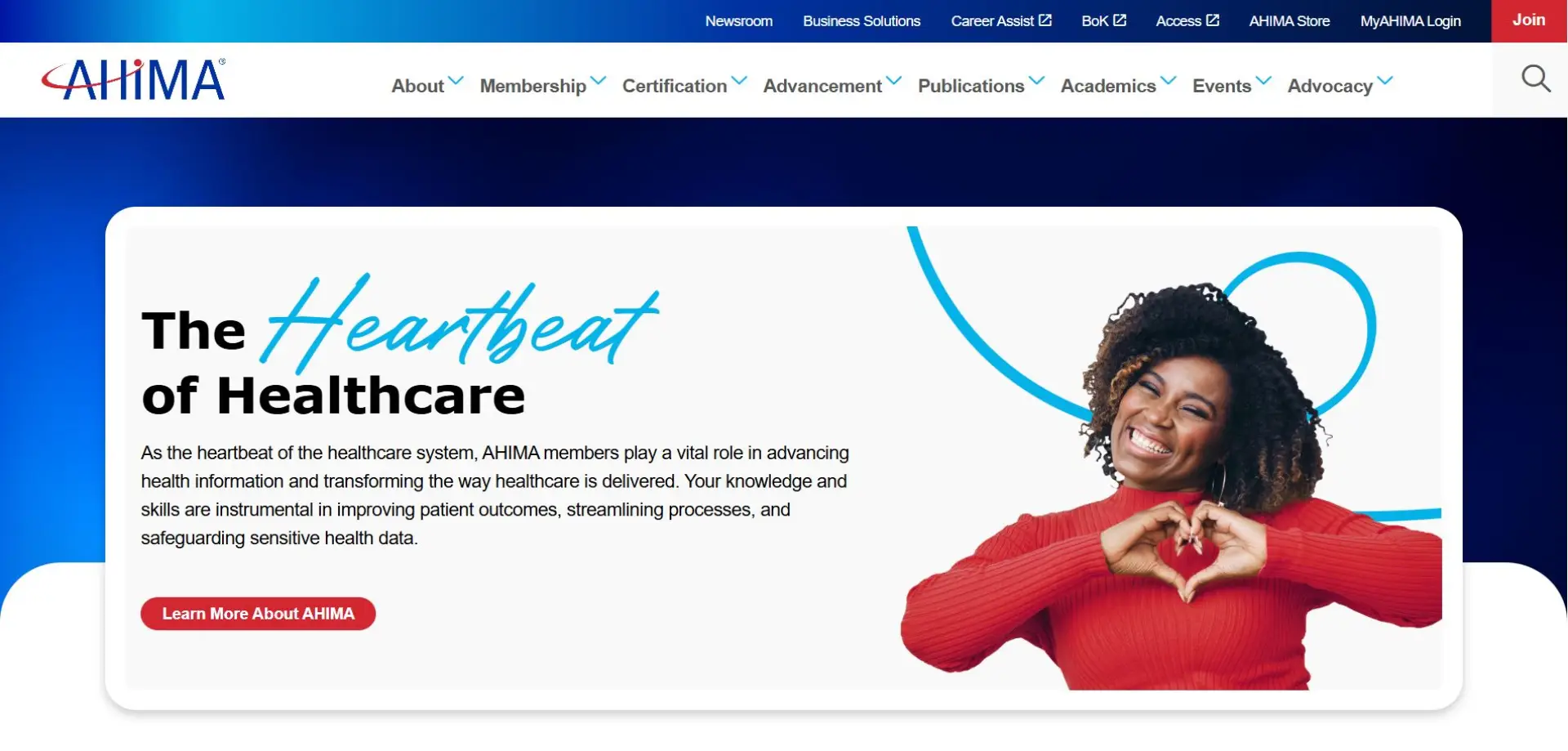
AHIMA focuses on coding and health information management, with certifications like the Certified Coding Specialist (CCS) credential, which play a major role in revenue cycle accuracy. Professionals seeking to specialize in coding and compliance often rely on AHIMA certifications to strengthen their RCM credentials.
5. American Institute of Healthcare Compliance (AIHC)
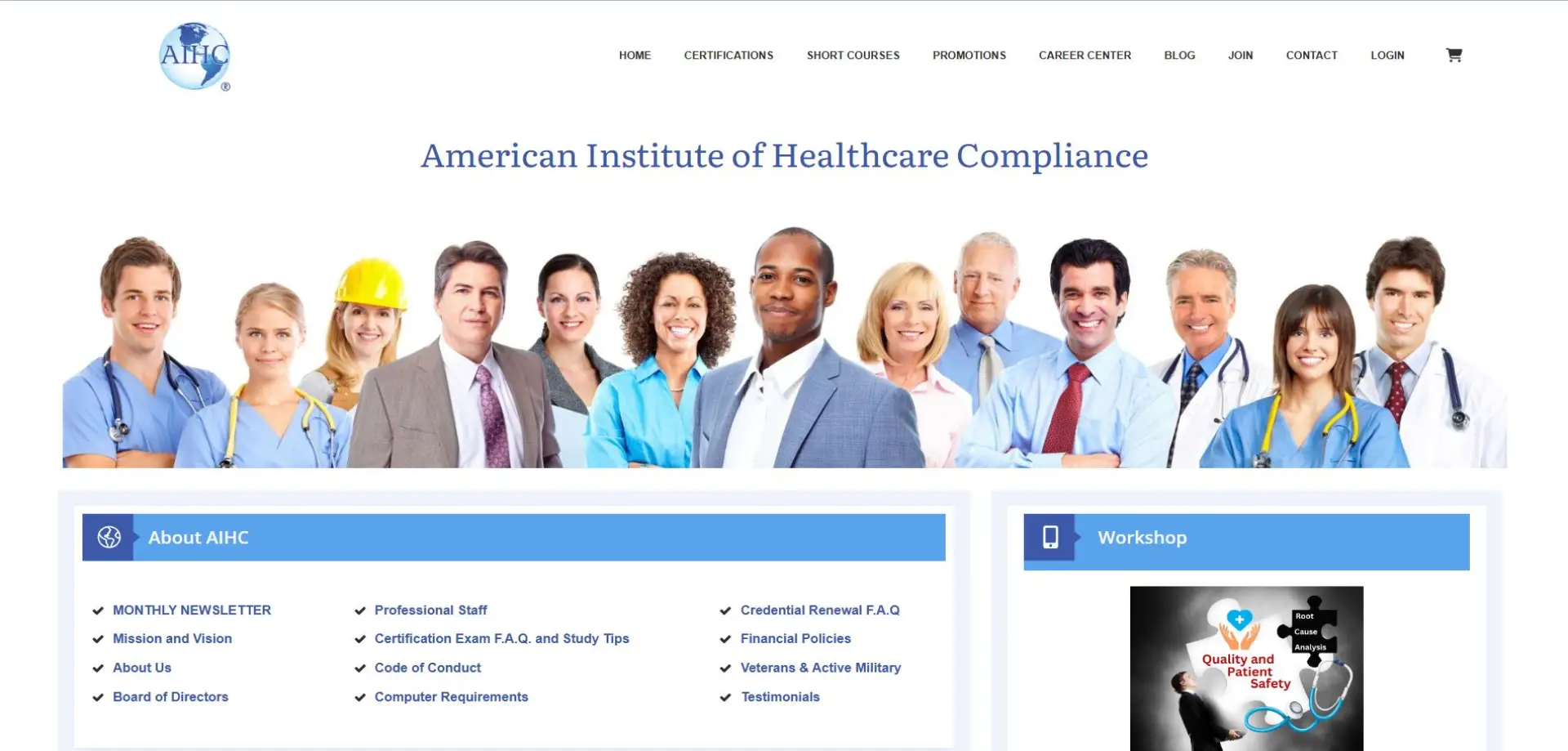
AIHC offers a Revenue Cycle Management program with the optional Certified in Outpatient Revenue Cycle Management (CORCM) certification, covering compliance, claims management, and performance indicators. This online course is ideal for professionals seeking to enhance their expertise in regulatory and operational aspects of the revenue cycle.
6. Practice Management Institute (PMI)
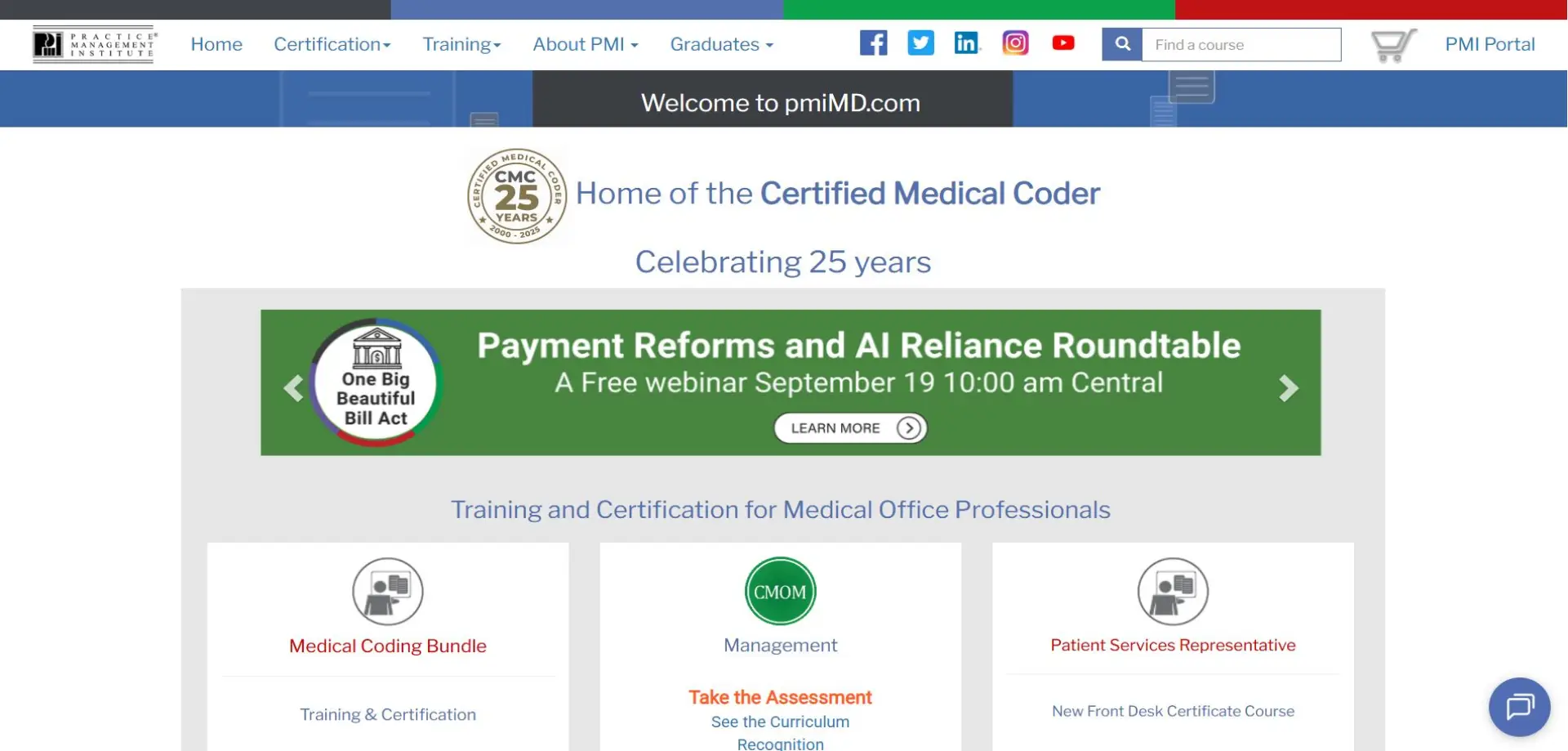
PMI offers certifications tailored to medical office administrators, including revenue cycle management training. Their programs are particularly useful for small practice managers who need broad knowledge of front-to-back office financial processes.
7. University of Cincinnati

The University of Cincinnati offers an online Revenue Cycle Management Certificate, preparing students for the Certified Revenue Cycle Specialist (CRCS) and Certified Revenue Cycle Professional (CRCP) exams. It is ideal for professionals seeking to strengthen their skills in billing, coding, and compliance within the healthcare revenue cycle.
8. Healthcare Business Management Association (HBMA)
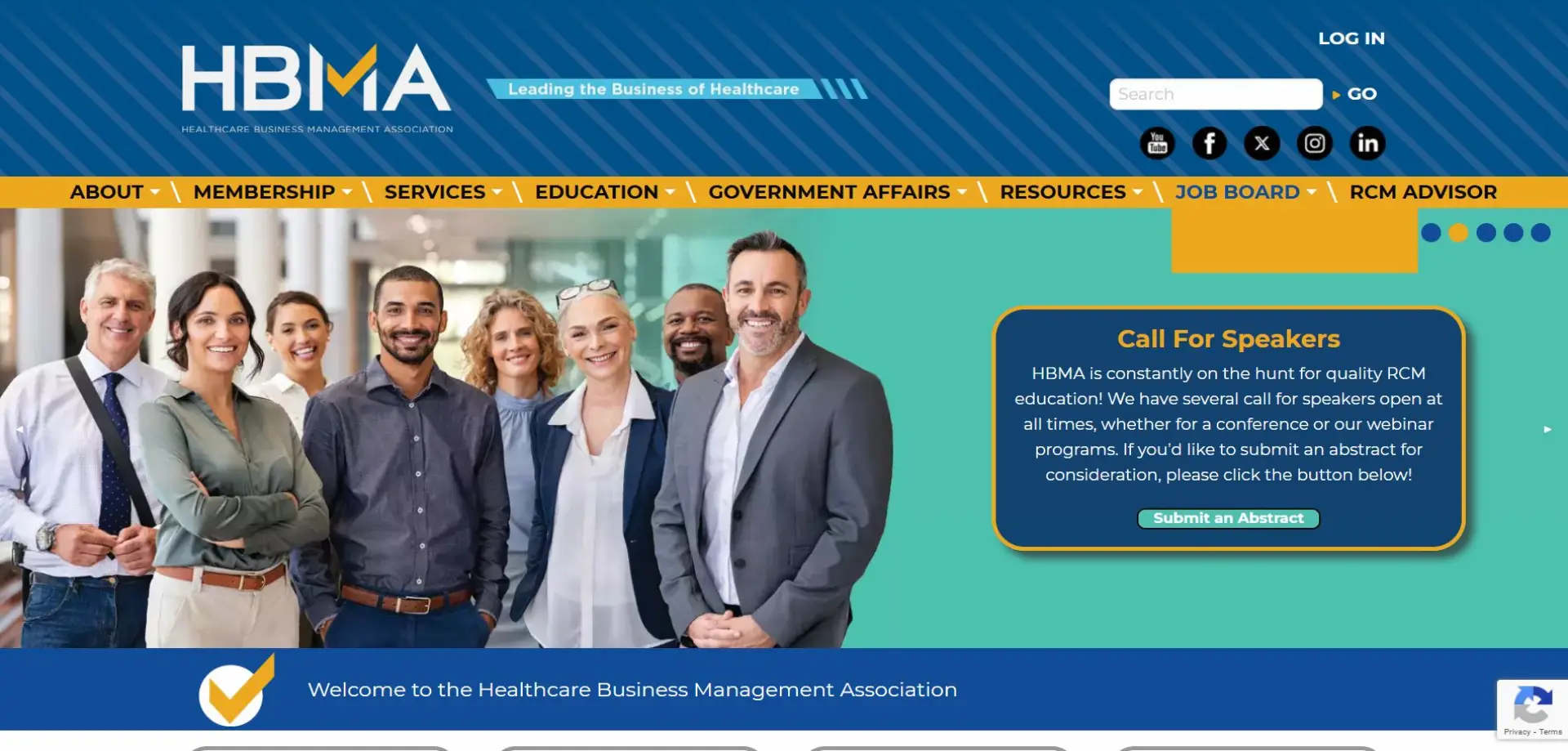
HBMA certification is geared toward medical billing professionals and companies, with a focus on compliance and revenue performance. Its programs help participants meet regulatory requirements while improving operational outcomes.
9. Coursera
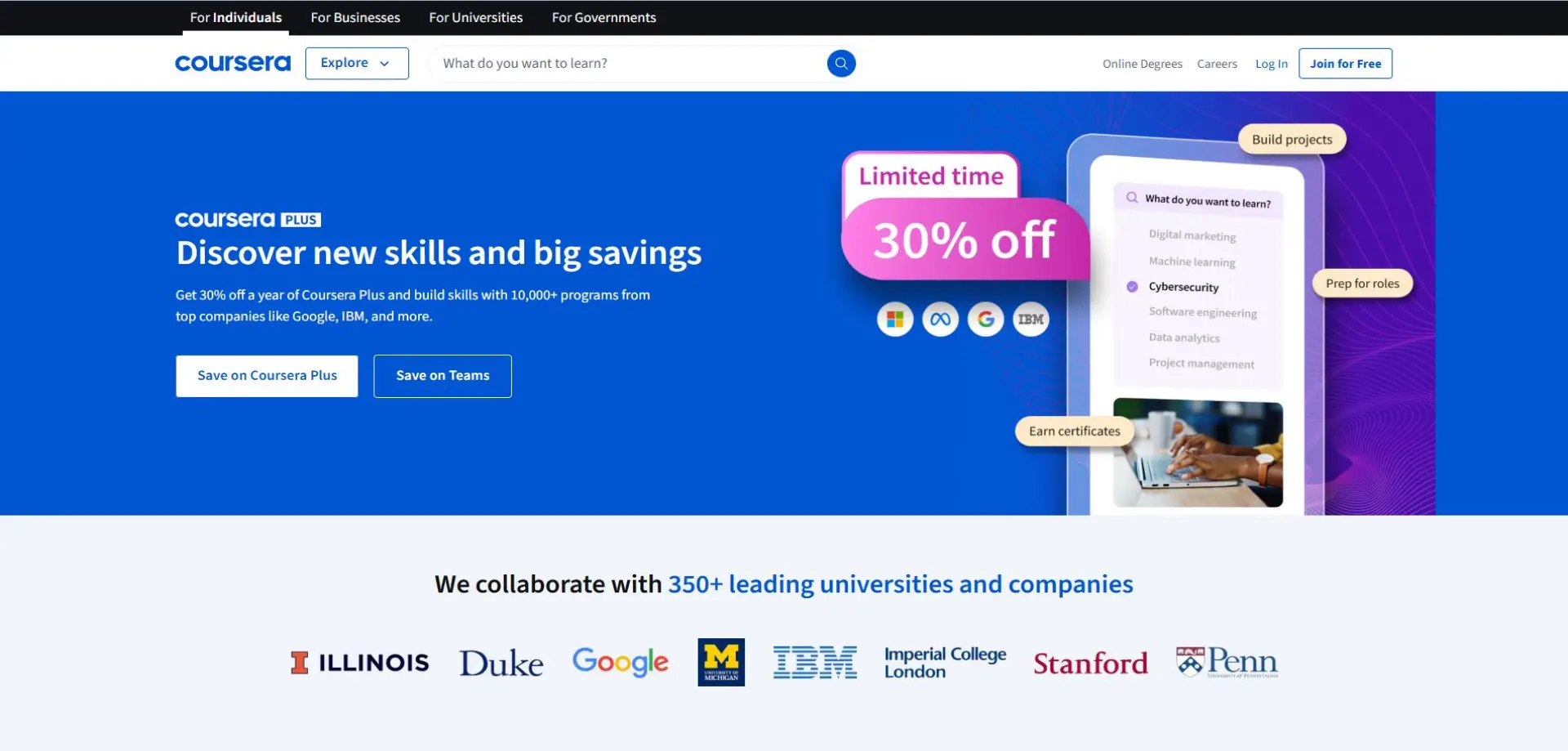
Coursera partners with universities to deliver accessible online certifications in medical billing and healthcare revenue cycle management. Its flexible, self-paced model makes it a popular choice for global learners and busy professionals.
10. American Academy of Professional Coders (AAPC)
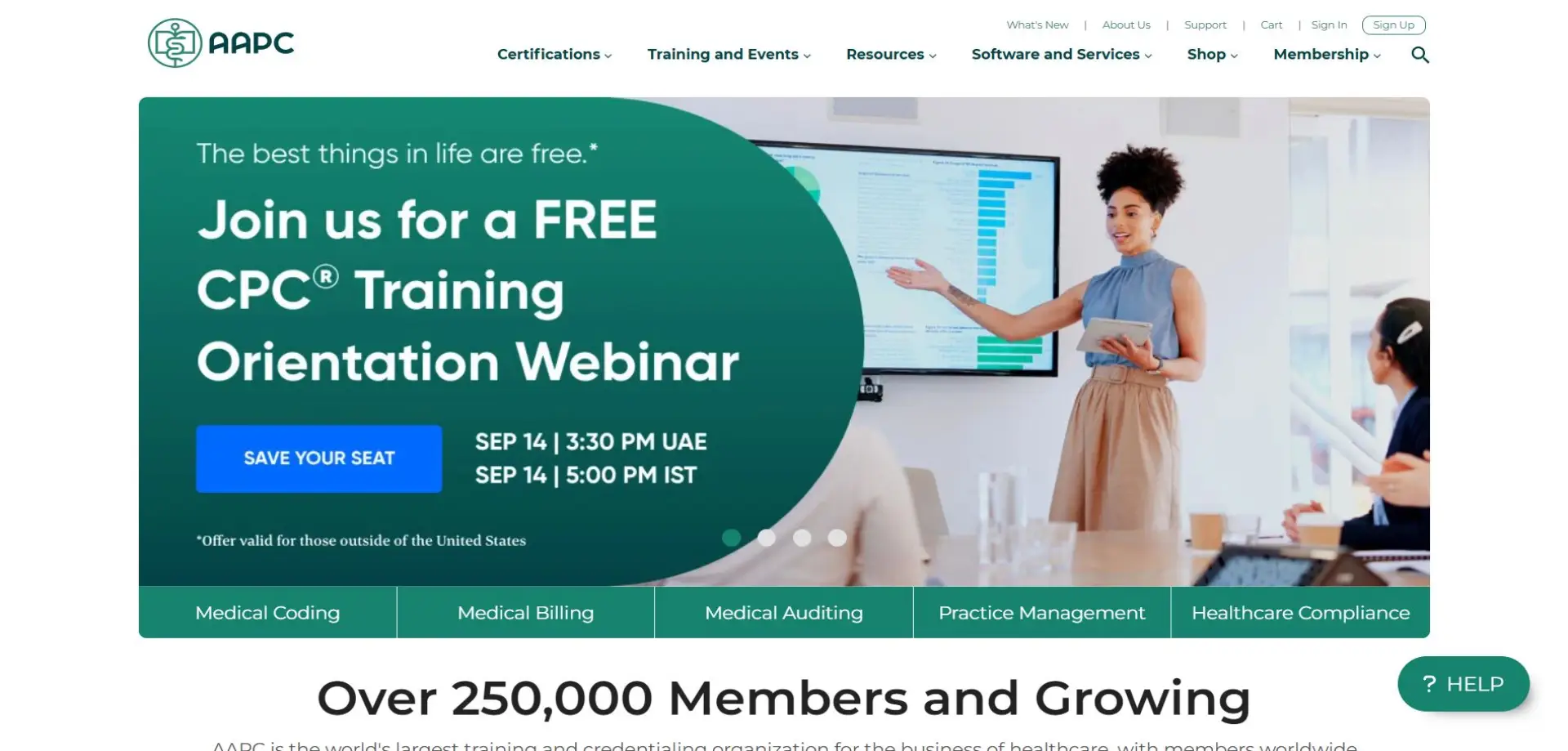
AAPC certifications, such as the Certified Professional Biller (CPB), are widely recognized for their practical focus on claims and reimbursement. These programs are well-suited for coders and billers aiming to deepen their RCM expertise.
Key Qualities of RCM Certification Providers
Industry recognition
A top certification provider must be recognized across the healthcare industry for the credibility of its programs. Recognition ensures that employers value the credential, making it a strong asset on a professional resume.
Comprehensive curriculum
Strong providers offer a curriculum that covers every stage of the revenue cycle, from registration and coding to claims and collections. This ensures professionals gain both broad knowledge and specialized skills needed for real-world success.
Continuing education support
The best providers don’t stop at certification but also offer continuing education units (CEUs). This commitment helps professionals stay current with evolving regulations, technology, and industry standards.
Flexibility in learning
High-quality providers deliver learning in multiple formats, such as online courses, in-person workshops, or hybrid models. Flexibility allows professionals to complete certifications without disrupting their work schedules.
Core Offerings of RCM Certification Providers
Certification programs
The primary service offered by providers is structured certification programs that validate RCM expertise. These programs often culminate in exams that test knowledge and practical application of revenue cycle processes.
Exam preparation resources
Many providers support learners with study guides, practice tests, and review sessions. These resources are designed to increase exam success rates and build confidence among participants.
Professional memberships
Professional associations often bundle certifications with membership benefits such as networking events, industry publications, and online communities. This adds long-term value to the certification and helps professionals stay connected to industry peers.
Career advancement opportunities
Top providers also offer career resources like job boards, mentoring, and leadership development programs. These services extend the impact of certification by supporting continuous career growth.
What to Consider When Choosing an RCM Provider
Alignment with career goals
The most important factor is choosing a provider whose certifications match your career path. For example, entry-level professionals may benefit from coding or billing certifications, while executives should pursue leadership-focused credentials.
Cost and value
Certification costs can vary widely, so it’s essential to weigh the investment against long-term benefits. A well-recognized certification often pays for itself through improved job prospects and higher salaries.
Renewal and maintenance requirements
Most certifications require ongoing education or periodic renewals. Understanding these requirements upfront helps professionals avoid unexpected costs or lapses in credential validity.
Accessibility and format
Prospective candidates should consider whether a program is offered online, in-person, or in a hybrid format. Choosing a delivery method that fits your schedule and learning style is key to successful completion.
Combine Certification with Aptarro Revenue Cycle Management Software
RCM certification providers play a vital role in advancing healthcare finance by building skills and setting professional standards. Their programs validate expertise in billing, claims, compliance, and reimbursement, giving professionals confidence and positioning them as valuable assets to their organizations.
As demand for certified specialists grows, the right certification ensures your team is prepared for today’s challenges. But certification alone isn’t enough. To protect revenue, certified staff need tools that scale their expertise.
Aptarro’s revenue cycle automation complements certified professionals by reducing denials, catching errors before submission, and keeping up with payer rules. Together, technology and expertise create a more accurate, efficient, and financially strong revenue cycle.
Want to see how it works in practice?
Author
